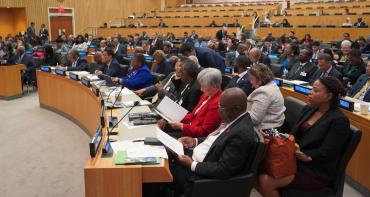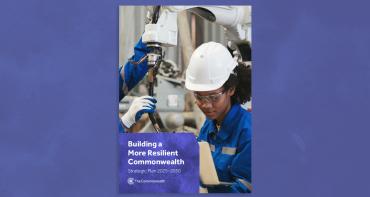The Commonwealth Heads of Government Meeting in Malta will look at ways that governments can counter extremism, prevent radicalisation and build peace.

The Commonwealth Heads of Government Meeting in Malta will look at ways that governments can counter extremism, prevent radicalisation and build peace, writes Commonwealth spokesperson Will Henley
When Commonwealth leaders gather in Malta later this month for their biennial Heads of Government Meeting, talks will explore strengthening peace efforts and countering radicalisation and violent extremism.
In the 2015 Global Peace Index, while 81 countries globally had become “more peaceful” in the past twelve months, for 78 countries peace had deteriorated, often marked by rising incidents of violence or terrorism.
The rise of ISIL in the Middle East has destabilized the world, especially through its effective use of social media to recruit people to its ultra-violent ways. Now, no country on Earth is untouched by extremism, including Commonwealth member countries. In Malta, heads of government are expected to renew their commitment to counter radicalisation, violent extremism and terrorism, and agree to share practical prevention strategies and best practices in criminal justice systems.
But while much attention has focused on the causes of violence, the causes of peace are perhaps harder to grasp. According to Victor Ochen, named Commonwealth Youth Worker of the Year for his work with young people in communities affected by conflict in northern Uganda, the “ingredients of peace” are “democracy, participation, generational inclusion, gender inclusion and diversity.”
The organisation Victor set up a decade ago, African Youth Initiative Network, has helped to reintegrate former child soldiers and abducted youths, providing medical and psychosocial rehabilitation to more than 5,000 victims and survivors of war. “We have been nurturing and healing, not only at the individual level but also among families and communities,” he says.
His work draws inspiration from the Commonwealth Commission on Respect and Understanding. Established in 2007 and chaired by Nobel laureate Amartya Sen, the commission looked at the roots of human conflict including extremism and terrorism. Its landmark report, Civil Paths to Peace, identified the mechanisms through which violence is cultivated, such as advocacy and recruitment, and the inequalities and deprivations which feed violence.
The commission concluded that governments must go beyond criminal justice, security and intelligence measures and must seek to cultivate “respect and understanding” between peoples. It argued for new forms of political participation, an emphasis on non-sectarian non-parochial education that expands rather than reduces the reach of understanding, as well as support for young people, women and the media who can play a key role in social cohesion.
When Commonwealth Heads of Government meet in Malta between 27 and 29 November, they will have an opportunity to review progress in each of their regions - in Africa, Asia, the Caribbean and Americas, Europe and the Pacific - on ways to prevent conflict and counter violent extremism. They will have a chance to build an international coalition on the less obvious, but arguably more effective, ways to construct a peaceful society: by ensuring Commonwealth citizens are authentically included in the decisions that affect them, enjoy healthier and more prosperous lives, and are respectful of other cultures and lifestyles.
The consensus reached in Malta could lead to practical policy-level interventions in member countries which help leaders like Victor, by giving them the space and enabling environment to make a greater impact. It could also ignite initiatives to link up peace-builders between countries, to inspire, support and learn from each other’s efforts. This multilateralism is the value-add, or “special ingredient”, provided by the Commonwealth to peacebuilding.
In the words of Amartya Sen, “the Commonwealth’s multilateral tradition has enormous benefits to offer for all Commonwealth countries, and even beyond our borders. We live in an era of overwhelming global interdependence, and the Commonwealth has duties not only to itself, but also to the world as a whole.”



